
StrikePoint Provides Exploration Update on its Recently Acquired Hercules Gold Project, Walker Lane, NV

Visible Gold Documented in Three Separate Widely Spaced Locations
StrikePoint Gold Inc. (TSX-V: SKP) (OTCQB: STKXF) is pleased to provide an update the wholly owned Hercules Gold Project located in Nevada’s Walker Lane approximately 20km east of the Comstock Lode where historically 14 million oz of gold were produced.
Michael G. Allen, President and CEO of StrikePoint commented, “One of the significant outstanding features of the Hercules Gold Project is the scale of the gold and the scale of the property. Visible gold has been documented at surface at three separate widely spaced locations. Additionally, previous geophysical surveys indicate the presence of an extensive alteration zone that is approximately 13 km long and 6 km wide that is coincident with the known mineralization, all of this is contained within the 100 square kilometer property.”
The project’s acquisition by StrikePoint was announced September 3, 2024.
Hercules Gold Project Geology:
The Hercules Gold Project features a large-scale low-sulphidation epithermal gold target. Potentially economically significant gold grades/thicknesses have been intercepted by multiple operators with over 300 drillholes over a large area suggesting a strong gold mineralizing system. Drilling has largely been focussed on the northern portion of the property focussed on 5 target areas: Hercules, Cliffs, Loaves, Northeast and Rattlesnakes. These targets can now be drilled under an existing Plan of Operations exploration permit. Additional targets, Sirens and Como Comet can be drilled under two Notice of Intent Permits
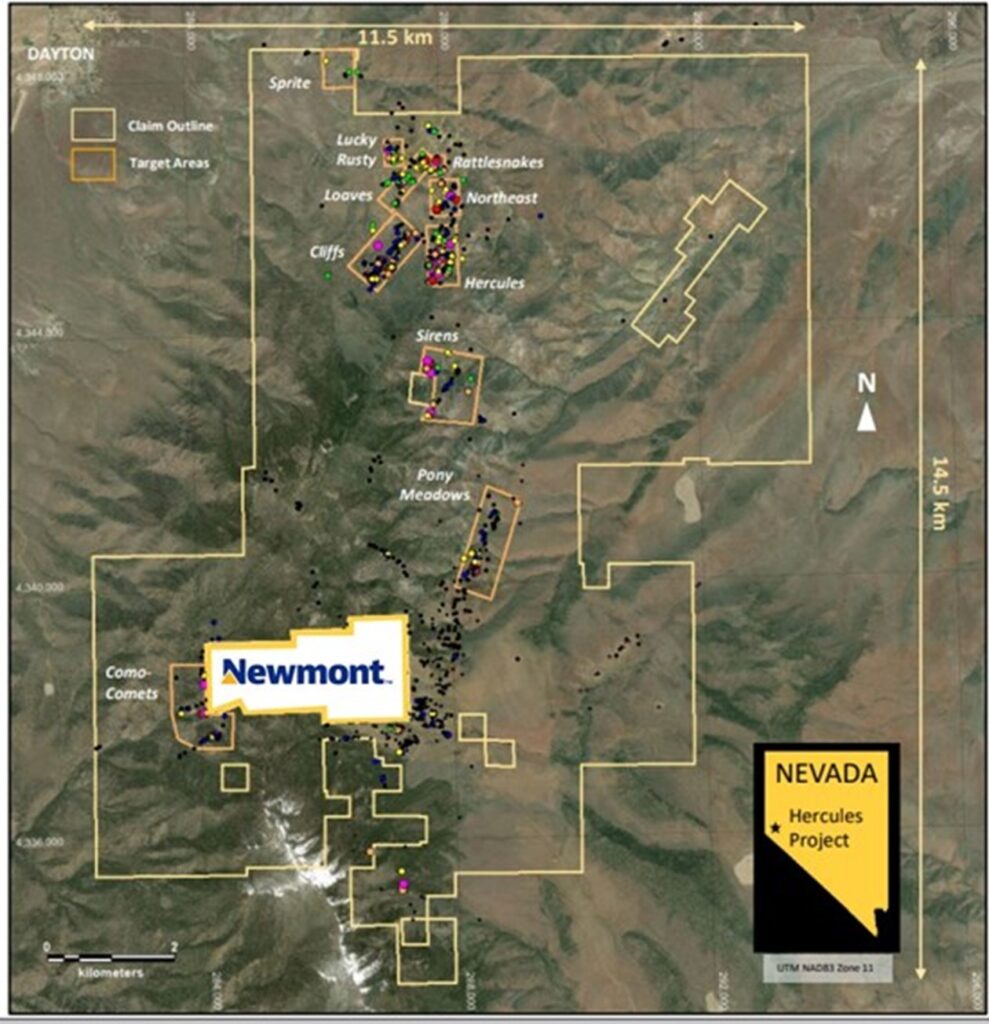
Figure 1 Hercules Gold Project targets and surface samples
Extensional structures appear to have been the primary conduits along which gold and silver mineralization was emplaced into the volcaniclastic sequence on the Hercules Gold Project. Broad zones of disseminated gold mineralization appear to have been formed where the metal bearing structures have intersected permeable units (e.g., block-and-ash tuff) in the volcaniclastic sequence. Mineralization has largely been oxidized with local relicts of transitional mineralization remaining.
Hercules Target:
The Hercules target is the southeastern most of the targets available for drilling under the existing Plan of Operations. It is one of the three locations on the Project that visible gold has been documented in surface samples.
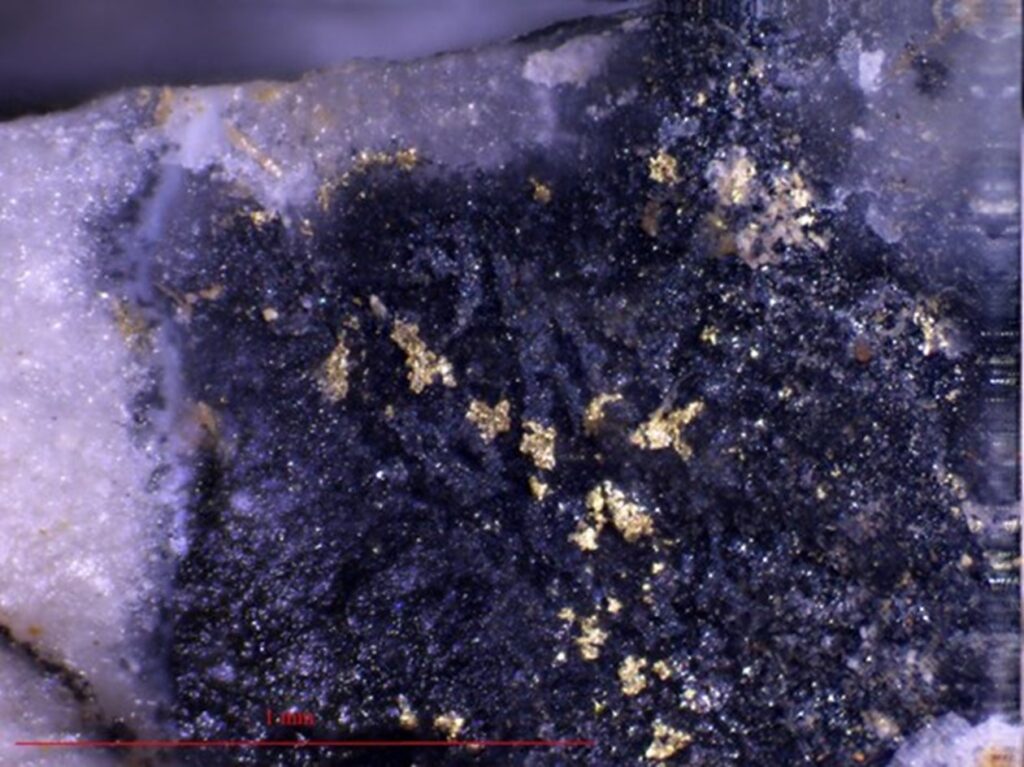
Figure 2, Hercules Target Visible Gold
A historic rock chip sampling program identified a potential high-grade core of the target, within a broad zone of gold mineralization associated with widespread silicification. Drilling appears to have confirmed the presence of a high grade near surface core of mineralization. Induced Polarization (IP) geophysical work suggests a 2km long continuous NNE trending structural zone. The IP data as well as drilling data, suggests additional structures may be found to the West of the Hercules target towards the Cliffs target. The area between the Cliffs and Hercules target is covered by late dacite and landslide deposits. No drilling has been carried out between the two targets, but both are open for lateral expansion as recent drilling has identified new mineralization between the two targets.
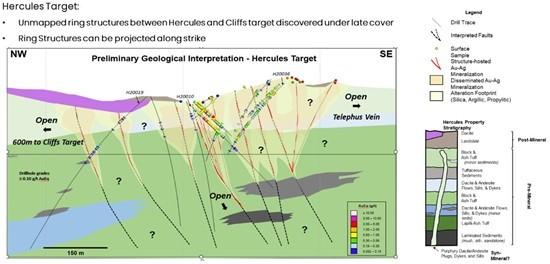
Figure 3, Hercules Target Schematic Section
To the East of the Hercules showing is the Telephus vein where visible gold was also documented.
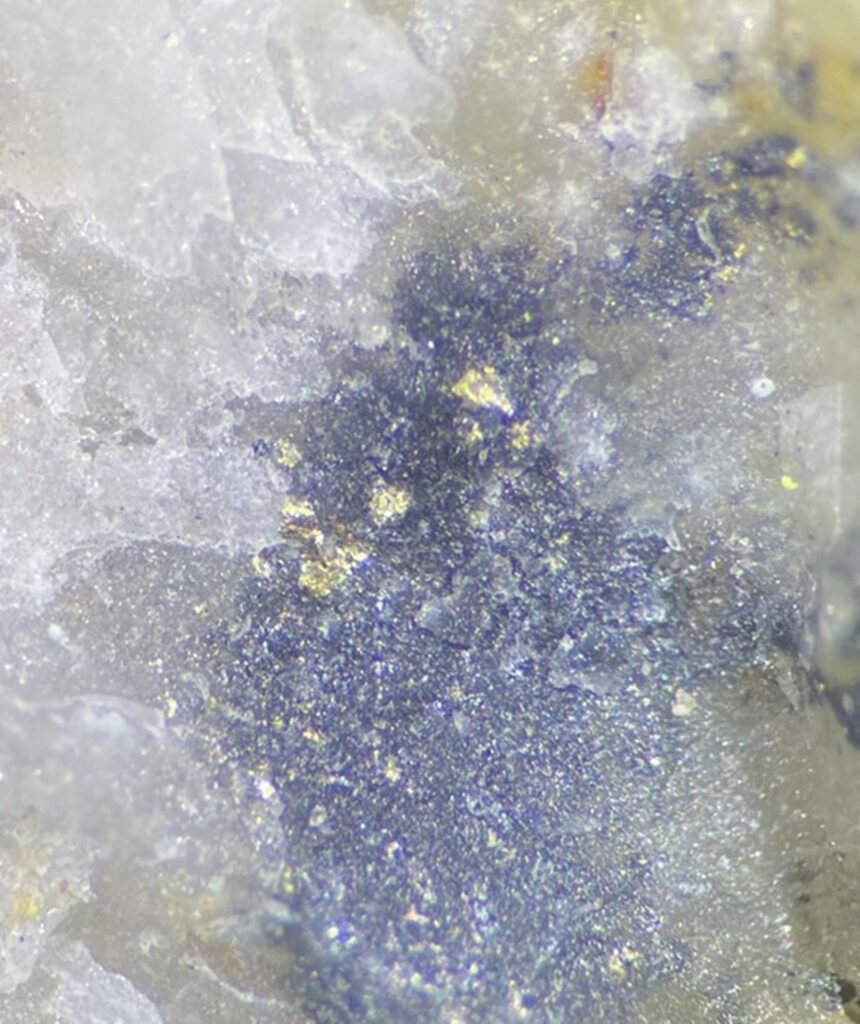
Figure 4 Telephus vein visible gold
Cliffs Target:
The Cliffs target is approximately 600m to the west of the Hercules target and is available for drilling under the existing Plan of Operations. The Cliffs and Hercules showings are separated by a late dacite and landslide cover sequence. A new geological interpretation of ring (extensional) structures controlling mineralization has led to recent drilling being undertaken in a new orientation. Results of this drilling has given predictable mineralization and has encountered gold mineralization further to the east (towards the Hercules showing) than previously documented.
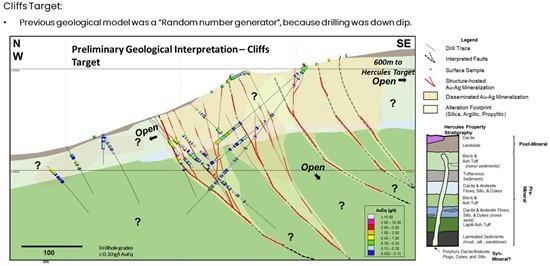
Figure 5, Cliffs Target Schematic Section
Both the Hercules and Cliffs Targets remained open along strike, across strike, and at depth. Additional work to evaluate the Loaves, Lucky Rusty, Rattlesnakes, Sprite and North East target is ongoing. If warranted, drilling could be included in an update to the existing Plan of Operations permit.
Southern Targets:
The southern portion of the Hercules project has received very little modern exploration. An airborne geophysical survey (Magnetics and Radiometrics) of the entire Hercules Gold Project identified several targets of note and two were permitted for drilling.
The Sirens target has reported historical intercepts of 38.10m grading 0.64 g/t Au (ending in 0.85 g/t Au) in hole BR08-06, and 25.91 m of 0.68 g/t Au (ending in 0.91 g/t Au). Panned gold was collected at the Sirens showing and near a historical working at the Pony Meadows target. The Sirens target is permitted for drilling under a Notice of Intent Level Permit. Both targets appear to demonstrate that mineralization is controlled by large scale ring structures similar to the Hercules and Cliffs targets located 2-5 km to the North. Drilling at Pony Meadows could take place under a modification to the Sirens Notice of Intent Permit, or potentially a separate Notice.
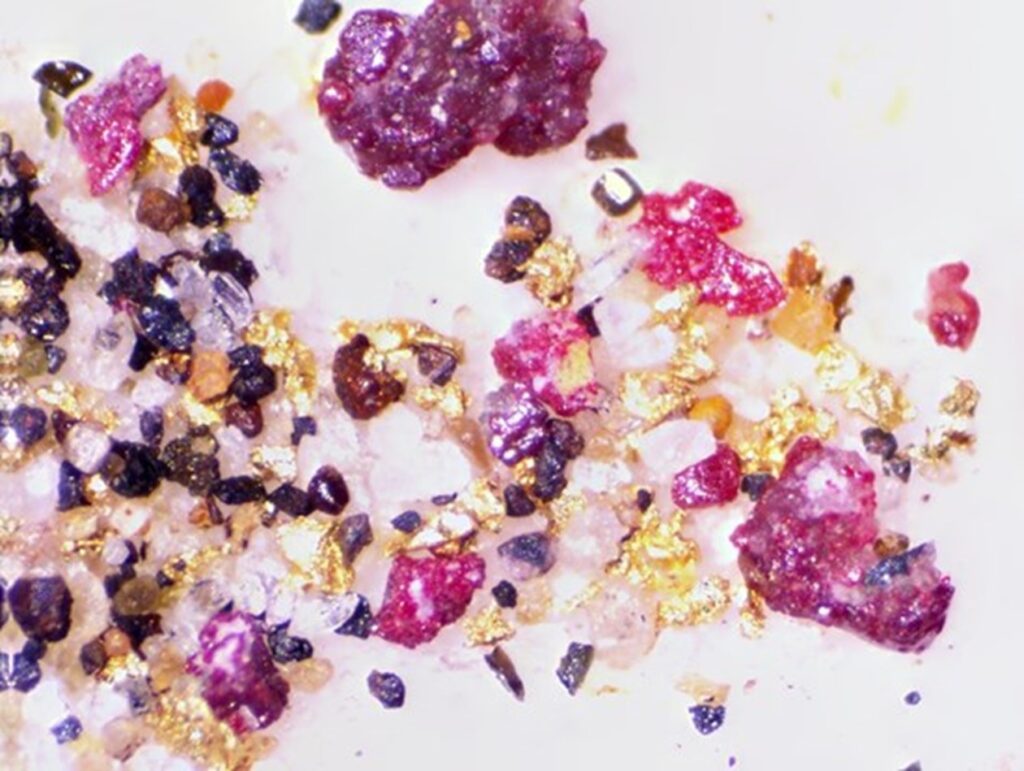
Figure 6 Sirens Panned gold concentrate
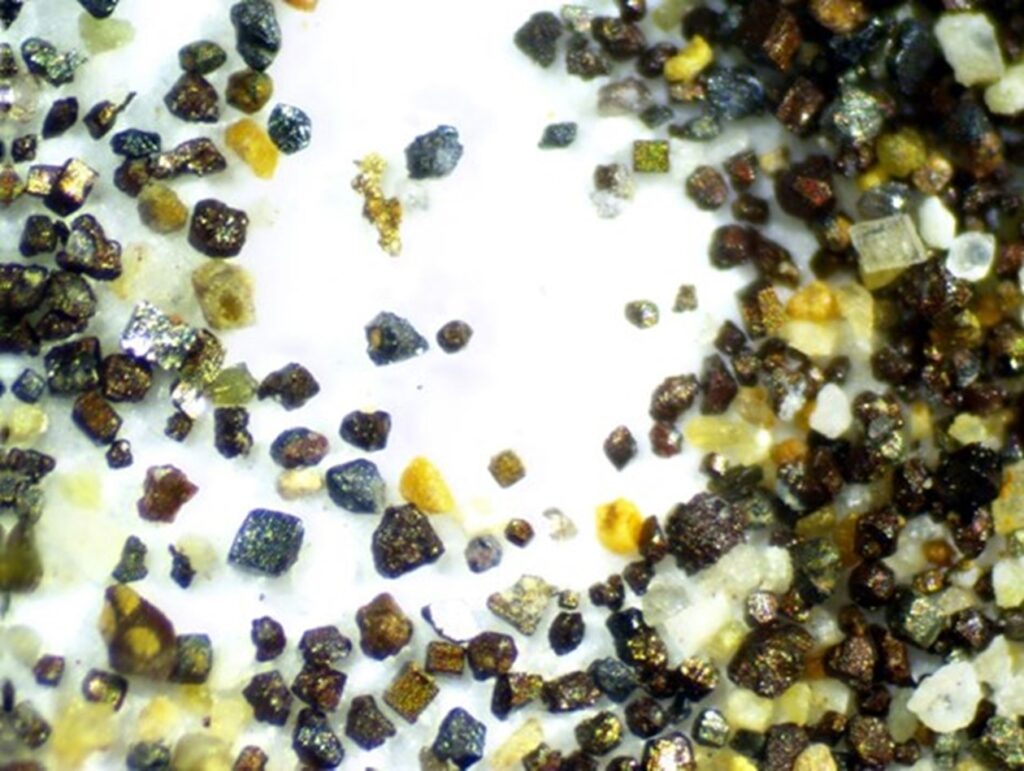
Figure 7 Pony Medows Panned Concentrate showing visible gold
The Como Comets target is also permitted for exploration drilling under a Notice of Intent. This thought to be the extension of the past producing Como District held by Newmont Mining Corporation, through its subsidiary Fronteer Development USA. The Como District is an inlier to within StrikePoint’s larger Hercules Gold Project. (See Figure 1.)
Hercules Gold Project Land:
The Hercules Gold Project consists of 1,323 unpatented mining claims and 4 patented mining claims covering approximately 100 square kilometers of prospective Walker Lane geology located one hour from Reno, Nevada. Detail of the transaction to acquire the Hercules Gold Project can be found on the Company’s September 3, 2024 news release.
The acquisition of Hercules in August 2024, at a minimal acquisition cost, gives StrikePoint a quality early-stage gold-silver exploration project in a Tier 1 jurisdiction with significant potential and drill ready targets across a large land package known mineralization and many untested targets. StrikePoint is excited about the opportunity the Hercules Gold-Silver Project provides. We are carefully reviewing the available historical data available to guide upcoming exploration programs.

Figure 8: Hercules Project Location Map
Qualified Person Statement
All technical data, as disclosed in this press release, has been verified by Michael G. Allen, P. Geo, President and CEO of the Company. Mr. Allen is a qualified person as defined under the terms of National Instrument 43-101.
About StrikePoint
StrikePoint Gold is a multi-asset gold exploration company focused on building precious metals resources in Canada and the Western United States.
Both the Cuprite Gold Project and the Hercules Gold Project are located in Nevada’s Walker Lane Gold Trend where StrikePoint Gold is rapidly becoming one of the largest holder of mineral claims with approximately 145 square kilometers of prospective geology under claim.
The Walker Lane hosts AngloGold Ashanti’s multi-million once Silicon Gold and Merlin discoveries and Kinross’s Tier – 1 Round Mountain Mine.
In addition, the Company controls two advanced-stage exploration assets in British Columbia’s Golden Triangle: the past-producing high-grade silver Porter-Idaho Project and the high-grade gold Willoughby Project.
MORE or "UNCATEGORIZED"
Delta Reports New Gold Intercept at Nova Target in Wedge Area, 4 Kilometres West of Eureka; Follow-Up Drill Program Underway
Delta Reports New Gold Intercept at Nova Target in Wedge Area, 4 ... READ MORE
Silver One Announces Closing Of Final Tranche Of $32 Million Financing
Silver One Resources Inc. (TSX-V: SVE) (OTCQX: SLVRF) (FSE: BRK1)... READ MORE
SAGA Metals Achieves 100% Drilling Success in 2025—Reports Final Assays from Trapper South at Radar Critical Minerals Project in Labrador
Exceptional grades of Titanium, Vanadium and Iron in all 15 drill... READ MORE
Near Surface Intersection Yields 6.58 g/t gold over 10.35 metres
Intersection is within 33 metres from surface and contained in a ... READ MORE
Alamos Gold Provides Three-Year Operating Guidance Outlining 46% Production Growth by 2028 at Significantly Lower Costs
Further production growth to one million ounces annually expected... READ MORE












